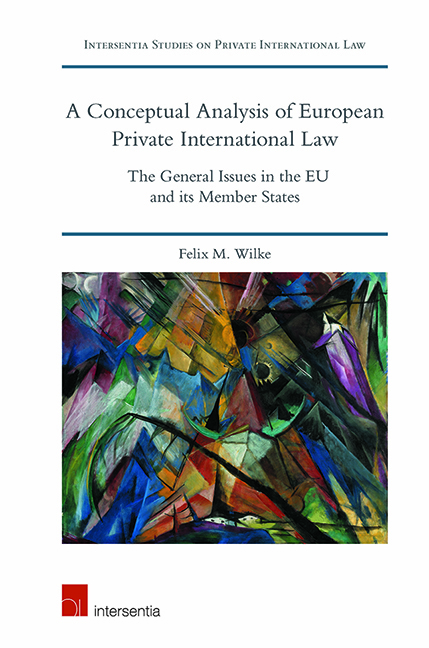 A Conceptual Analysis of European Private International Law
A Conceptual Analysis of European Private International Law Chapter 6 - Policy
from PART III - STANDARDS
Published online by Cambridge University Press: 30 March 2019
Summary
Whether or not a legislator should make general provisions for a given area of law is obviously not a question confined to private international law. The pros and cons of a general part of a civil code have been a topic of discussion “[e]ver since the heyday of Pandectism”. Pandectist textbooks following the structure introduced by Heise influenced the 1865 Saxon Civil Code, i.e. the “trial run” for the BGB, and then the BGB itself. But was it appropriate to transfer this structure of scholarly presentation and teaching, itself not free from critique, to legislation? Then again, criminal codes even before the 19th century had general parts, with the “technically exemplary” 1810 French Code pénal being a particularly influential model at the beginning of that century. Roughly two centuries later, the question of general provisions arises for EU private international law.
LEGISLATORS, SCHOLARS, TEACHERS: ANOTHER TRIPARTITE DISTINCTION
To begin with, it is worth emphasising that the following remarks only concern the legislator. The topic “general issues/rules” as such does not require this perspective. In particular, it can also be analysed in relation to scholars and teachers. These three dimensions must be set apart. At least as long as law is considered to be a systematic discipline – which is arguably (still) the European way of conceiving of law – the scholarly necessity of finding general patterns in the law and structuring it accordingly can hardly be questioned. This much is accepted even by those to whom a legislative general part in substantive private law is anathema. The often copious separate chapters on “general” or “preliminary” issues in books on private international law, even in member states without a respective code, demonstrate that this insight applies to private international law as well – and that it is anything but limited to the idea of law as “legal science”. On the other hand, it has also rarely been disputed that general statements about (substantive private) law are not exactly the ideal place to start when instructing novices in the law. When faced with generalities, their interest in the law will probably wane quickly.
- Type
- Chapter
- Information
- A Conceptual Analysis of European Private International LawThe General Issues in the EU and its Member States, pp. 319 - 352Publisher: IntersentiaPrint publication year: 2019
